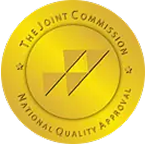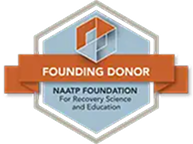Step 9: Making Amends (without harm)
Making amends may seem like a bitter pill to swallow, but for those serious about recovery it can be good medicine for the spirit and the soul.

Step 9
Made direct amends to such people wherever possible, except when to do so would injure them or others.
Step 9 is another one of the 12 steps, that initially appears most difficult, but the rewards of putting this principle into practice can be immense.
The spiritual principle involved is that of forgiveness, not only from others but forgiveness of self, which can bring healing to both parties.
After completing Step 8 — made a list of all persons we had harmed, and became willing to make amends to them all — the next logical step is to make those amends if possible, and the suggestion is to do so directly to those who have been harmed. By making direct amends to the person harmed the temptation to skirt the issue because of embarrassment or pain is avoided.
Simple but Not Easy!
But those making the amends find many times that the person to whom they have harmed is more than willing to accept those amends happily — and a healing process begins not only in the relationship but in each individual.
This is not always the case, however. Sometimes the injured party is not willing to forgive and forget. Regardless, spiritual progress for those in recovery depends upon doing their part right and making direct amends.
This step does carry a condition — except when to do so would injure them or others. If the act of making amends will open old wounds or create new harm, then making direct amends should be avoided. The benefit of making amends to the recovering person does not outweigh the need to do no more harm.
What Does Making Amends Have to Do With Staying Clean or Sober?
If your goal is to remain clean and sober, then it’s important to take this step to make amends when possible, because if you fail to do so, it could come back to cause you problems later.
If you know that you caused harm to others during your using days or you borrowed money and never paid it back, and you don’t try to set the situation right, then there is a very good chance the issue will arise again and when it does, it could be a trigger for a relapse.
On the other hand, if you deal with the situation from the past, then there is no way for it to come back and bite you later. You have dealt with it properly, you’ve kept your side of the street clean, and you’ve put the mistake from the past behind you.
Substance Use can be a fatal disease. Don’t procrastinate to make an apology or pay a debt you owe from the past become a bigger problem in the future that could cause you to pick drink or use again.
Here are some of stories from others, willing to share their experiences with Step 9:
Facing the Truth
“During my drinking ‘career’ I lived far away from my family therefore, no amends were required. Wrong! Facing the fact that omissions can be painful made this a powerfully healing step to do. And I keep on working it by staying sober, that is also a form of an amend.” Carol
An Amend, Not an Apology
“What is an amend? The technical answer is an amend is a change. An amend is not an apology. It is a clear and purposeful act designed to clear up a problem from the past.
If I harmed someone, and then in the course of working the steps reach a point to make an amend, it is my duty to sit down with the person and explain fully about substance abuse, my own personal program, what my fears were, and how I have changed as a human being.
If I owe something material, I pay it back, with interest if necessary. If what I owe cannot be measured in gold or other material substance, then I must humbly ask for forgiveness for my indiscretions and go my way. (What price is there for hurt feelings?)” Sox
A Healing Opportunity
“When I first experienced Step 9, I made amends because I finally saw things differently, and saw my part in the hurts I had caused and wanted to confess to them so I could feel better and let go of the guilt I had with this new awareness.
This was a good start for me but there were still a lot of ‘I’s’ as I experienced this step. As with all my steps I have found as time moves on, they reveal more and more to me. I have found that there is so much spiritual depth to them. The more I practiced this step the more I found out how much healing comes from it and not just for me.
As in many harms done, I found that it just wasn’t ‘I’ who had it all twisted up. In opening up some past wrongs and in making those amends, many dear and wonderful people have also received a healing, an understanding and answers to stuff they were holding on to for far too long. The truth also set them free.
So when I become aware of an injury I have caused another person, I gladly bear my soul of my wrong-doing so that the other person doesn’t have to carry around any excess garbage, twist their mind over and over again trying to make sense from the Mack truck that just ran them over. How blessed we are to become free from our past, and given the gift to help free another.” Alethea
Admitting the Part I Played
I always thought that I had been making direct amends whenever I had injured others. I would apologize for my mistakes and pray about it to have the knowledge to not repeat my actions.
But when I worked this step with my sponsor I realized that I had several issues that I didn’t even realize I needed to make amends about. The first being the alcoholics in my life, I had a part in their disease and didn’t know what I had done to them.
Out of love, I was trying to help them, I thought. But now know that I was taking their inventory not mine. So first I had to make my amends to them. It sure was healing. Not as painful as I thought it would be.
I also realized that in my childhood, that I had blamed my Dad for things my Mom actually caused by trying to get him to stop drinking. For years he had been drinking and she started later in my life, so I also blamed his actions for making her drink.
The program and this step made me see that it was their own doing; they made the choice. This was after they both had died and I am sorry that I couldn’t take this issue up with them personally. But I know they will know. We had settled everything made our amends to each other and enjoyed the rest of their lives. This makes me realize more and more how much this program is a lifetime program.
And I am glad we have this step. It keeps us honest with ourselves and others!
By Buddy T
Updated June 11, 2017
Shared from https://www.verywell.com/a-study-of-step-9-69407






